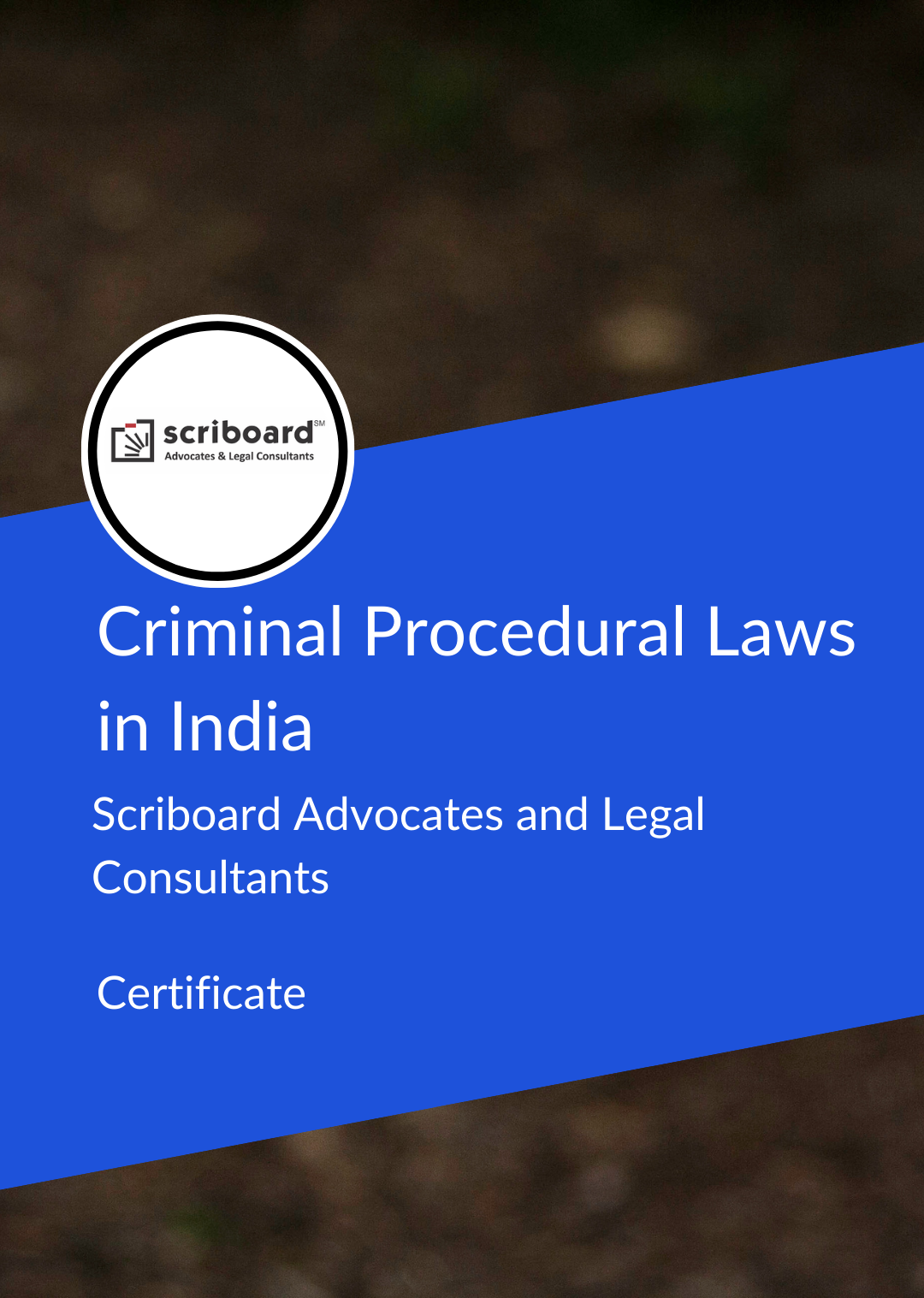Enrol for Lifetime Deal Course and get Access to 100+ Certificate Courses at INR 5999
Enrol for a Master Course at INR 3999 and get access to multiple Certificate Courses
Enrol for a Diploma Course at INR 2999 and get two free Certificate Courses
Enrol for a Certificate Course at INR 1999 and get one free Certificate Course

₹4,999.00 Original price was: ₹4,999.00.₹1,999.00Current price is: ₹1,999.00.
The procedural criminal law in India is governed by two legislations- the Code of Criminal Procedure, 1973 (CrPC) and the Indian Evidence Act, 1972. The CrPC encompasses all the details about the procedure to be followed in every investigation, inquiry and trial, for every offence under the IPC or any other law. It strives to ensure a fair trial where none of the rights of the accused are compromised nor are they unjustifiably favoured. The Indian Evidence Act, on the other hand, provides detailed provisions relating to admissibility of evidence. Both of these legislations work together, with the substantive criminal law (the Indian Penal Code, 1860) to provide justice to the victims. The Advanced Certificate in Criminal Procedural Laws in India is brought to you by Scriboard Advocates and Legal Consultants, one of the leading law firms in the field, in association with Enhelion. It provides a detailed analysis of criminal procedural laws in India i.e. the provisions of CrPC and the Indian Evidence Act, 1972. It further analyses the provisions relating to admissibility of evidence, and significance of such evidence in the trial of an offence.
Enrolling for the certificate programme will enable you to:
The curriculum is designed to act as a conceptual guide on the criminal procedural laws in India vis-à-vis the Code of Criminal Procedure, 1973 and the Indian Evidence Act, 1972.
The following modules are covered under the course-

Rodney D. Ryder is the founding partner at Scriboard and is a leading technology, intellectual property and corporate lawyer. He is the author of Guide to Cyber Laws: the Information Technology Act, 2000, E-Commerce, Data Protection and the Internet, the first section-wise analysis of the Indian Information Technology Act, 2000. He is presently Advisor to the Ministry of Communications and Information Technology, Government of India on the implementation of the Information Technology Act, 2000.Mr. Ryder has been nominated as a 'Leading Lawyer' in intellectual property, technology, communications and media law by Asia Law, Who'sWhoLegal, Asia Legal 500, amongst other International publications. Mr. Ryder is also advisor to the Data Security Council of India [a NASSCOM initiative] on the structuring of industry data privacy and information security policies and contractual standards. His second book, Intellectual Property and the Internet, published by LexisNexis is perhaps the only one of its kind in Asia. The text has been acknowledged to be an authoritative work by the Hon’ble Supreme Court of India and has been quoted in the first and only judgement by the Hon’ble Supreme Court of India on domain names. He is advisor to the National Internet Exchange of India [NiXI] and a member of the panel of independent and neutral arbitrators with NiXI.
In every walk of life, the process of evaluation takes place in one form or the other. If the evaluation process is eliminated from human life then perhaps the aim of life may be lost. Being in the same line, Enhelion is committed to evaluate the process of learning through its courses.
The evaluation will be conducted in a two-fold manner. There will be one MCQ test which would test the basic understanding on the topics covered in the course. Furthermore, there will be one Project Assignment, which would test the analytical understanding of the same.
The most intriguing aspect of the evaluation process is the time flexibility it affords. You can take the MCQ test and submit the project assignment as per your convenience.
To be eligible to receive a certificate after successful completion of the course, one is required to secure a minimum of 40 percent overall.
